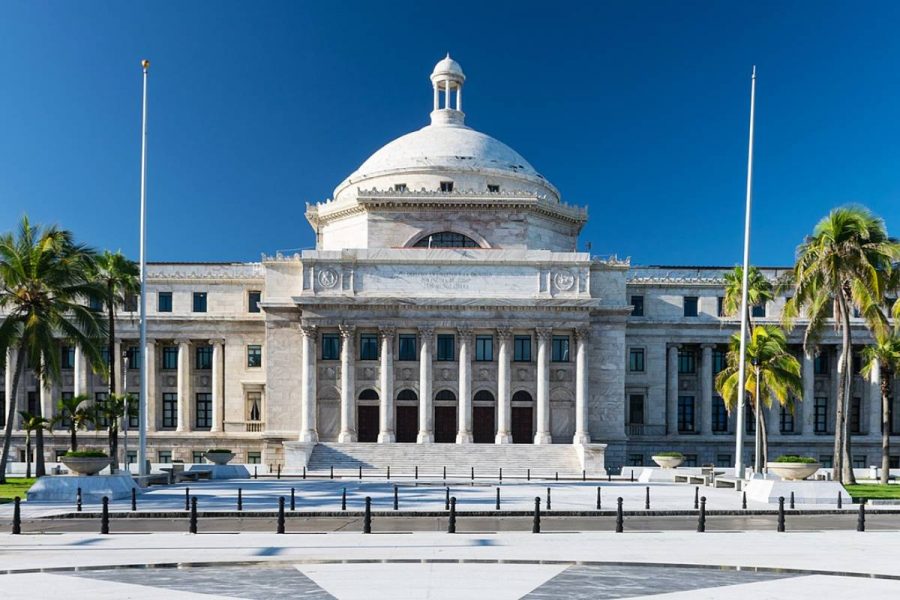
The agency issued a statement criticizing the law regulated in February.
Puerto Rico.- The Fiscal Oversight Board (JSF) issued a new warning to the government of Puerto Rico criticizing Law 116, signed by Governor Pedro Pierluisi which amends the “Slot Machine Gaming Law”. According to the agency, the approved regulation would affect the government's revenue collection, without presenting alternatives to replace the loss of income that the treasury would see.
The new regulation was enacted with the goal of ensuring that retired Puerto Rican police officers receive at least 50 percent of their pensions. However, the JSF claims that the new provisions will result in a reduction of USD14m to the treasury.
The government, however, assured that the law is beneficial in its distribution and that the measure would not have the fiscal impact claimed by the JSF.
According to Law 116 of 2023, when slot machines generate revenues over USD315m, the percentage for casinos and slot machine owners will be higher than before.
The analysis by the defenders of the legislation is that, with the new model of slot machine revenue distribution, the budgets that receive money from such games –as is the case with the University of Puerto Rico– would increase their income because the formula would be based on gross receipts and not net receipts.
However, in a letter from the JSF sent last Monday, June 10, to government representatives, the fiscal agency's executive director, Robert Mujica, warned that the law not only impacts the treasury but also increases the income of slot machine and casino owners.
Specifically, the letter states: “Based on the analysis of the (JSF), this law reduces the government's share of slot machine revenues by USD14.8m per year. The law does not identify a viable source to replace this loss of money, whether through increases in collections or cuts in expenses” and adds that therefore, “Law 116 is inconsistent with the Fiscal Plan and violates the Promesa Law”.
In his letter, the executive director states that such regulation should not be implemented by the government, unless it is amended to correct the budgetary imbalance it would cause.
“The law cannot be implemented as it was approved and must be amended before being enforced, to ensure that the government identifies how it will cover this cost”, says the letter. “Additionally, to help increase or preserve government revenues, the law must be amended to ensure that the increase in the share of slot machine operators is dedicated to financing the purchase of new technologies and modernizing existing machines”.
See also: Puerto Rico: the gaming industry raised USD 186m in 2023
For his part, the executive director of the Financial Advisory Authority and Fiscal Agency (Aafaf), Omar Marrero Díaz, said in written statements that the agency is aware of the impact that the implementation of the law will have.
“The Aafaf is fully aware of the impact that the implementation of Law 116-2023 has on government collections and the University of Puerto Rico. We understand that this law, even though it modifies the distribution formula, is not significantly inconsistent with the Fiscal Plan, because the revenues anticipated in the plan are much lower than the current collections from slot machines”, said Marrero according to the local media El Nuevo Día.
He also added that “the current collections from slot machines significantly exceed the estimates of the (JSF) every year. Because the performance of the slot machines has been so successful in recent years, the government has increased its corresponding revenues”. He insisted that the law represents a multimillion-dollar contribution to the UPR.
According to Marrero, the government's fiscal agency did discuss with the JSF, the change in the way of estimating the contributions from the gambling sector.
“In summary, our position is that, although the potential participation of the government is reduced, this is not inconsistent with the Fiscal Plan, since the current collections are well above the estimates included in the fiscal plan. For this reason, the additional distribution is above what the Fiscal Plan already projects”, emphasized Marrero Díaz.
The JSF, however, criticized that the approval of Law 116-2023 was not accompanied by the required certification by the Promesa Law, for which, the agency demanded that Governor Pierluisi deliver the certification before next June 25.








